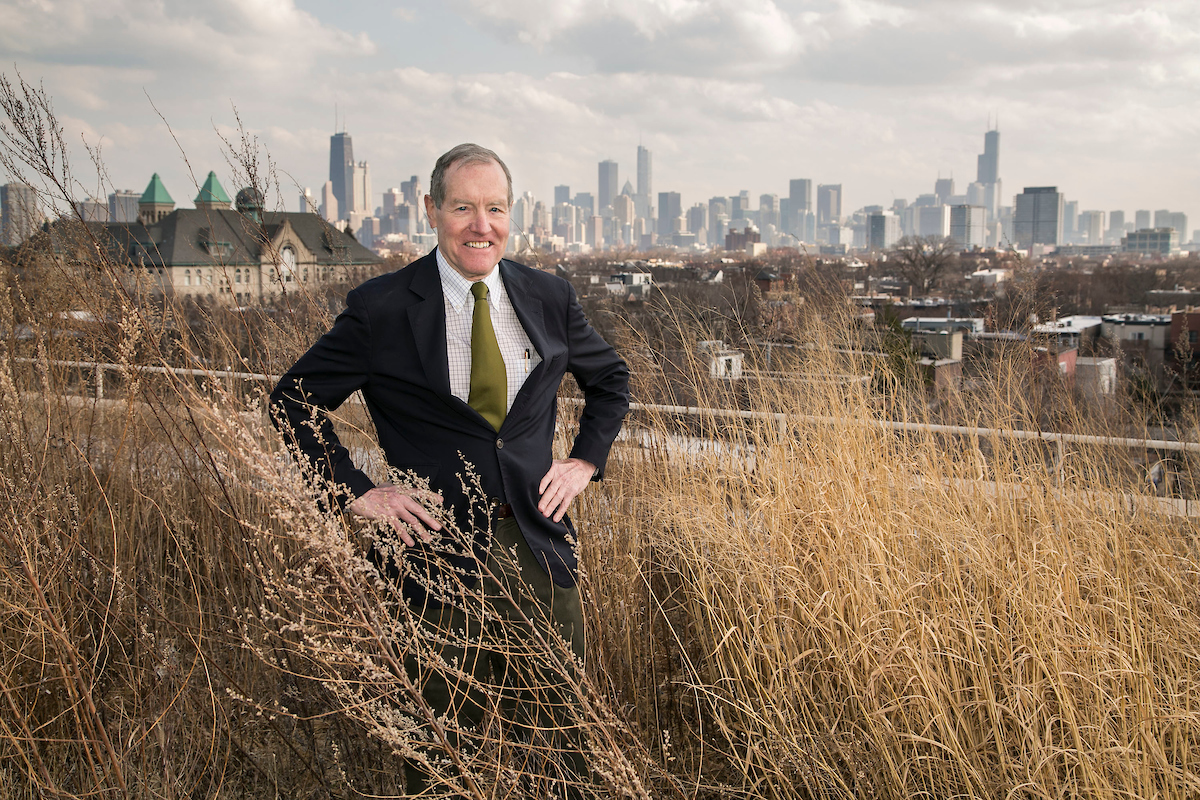 As director of the university's Urban Sustainable Management programs, Ron Nahser encourages students to address how organizations can develop and implement sustainable projects and strategies while competitively serving the needs of their market. (DePaul University/Jamie Moncrief)
As director of the university's Urban Sustainable Management programs, Ron Nahser encourages students to address how organizations can develop and implement sustainable projects and strategies while competitively serving the needs of their market. (DePaul University/Jamie Moncrief)I am the director of the university’s Urban Sustainable Management programs and core faculty member in the master’s in Sustainable Management faculty advisor to the DePaul Net Impact Chapter and a co-director of the DePaul Sustainability Network. I also was an executive in residence in the Kellstadt Graduate School of Business from 1982 – 1994, teaching a marketing and society course which led to earning my Ph.D. in American pragmatic philosophy from DePaul in 1995.
How do you make students world ready?
Most of my work at DePaul focuses on the master’s in Sustainable Management, which was launched in 2012. It’s an interdisciplinary, cross-college program designed to engage and educate future business, government and nonprofit managers to think more critically about their organization’s purpose from a sustainability standpoint, as well as to clarify the values driving their career paths. We’re addressing how organizations can develop and implement sustainable projects and strategies while competitively serving the needs of their market. This emerging field crosses almost all sectors and creates a need for professionals who can think about economic goals and social and environmental sustainability in tandem.
At the start of the program, we have students choose a topic for their career interest – fashion, water, housing, women’s personal products, fast food, energy, childhood education - you name it. Throughout the 12 courses of the program, students identify a sustainability-related challenge or opportunity in that field. They then assess its traditional management practices, find areas for intervention in the economic system and create a business case of their sustainable strategies. Our students not only increase their knowledge of sustainable principles and practices, but also build a portfolio while researching all stakeholders, a crucial aspect of systems analysis. They are then ready to engage employers, associates, investors, customers and potential partners in the next steps in their careers.
Our larger aim is to help students answer the Vincentian question: “What must be done?”